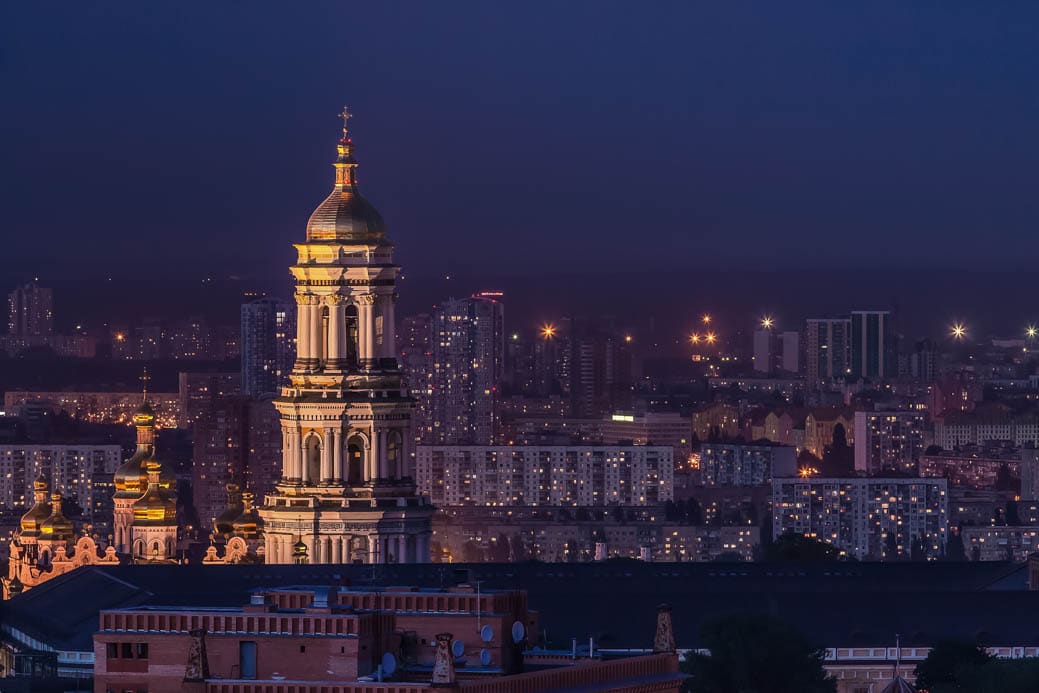The Russia-Ukraine crisis: The decline of Pax Americana?
Since the declaration of invasion on February 24, 137 Ukrainians have died and 316 remain wounded.
In his farewell speech at the Pentagon, former U.S. Secretary of Defense Donald H. Rumsfeld said that “weakness is provocation.” As explosions reverberate throughout Ukraine, one wonders what shifted in the Pax Americana—the period of relative peace in the Western hemisphere under American supremacy—to allow for the diplomatic failures and military crisis that now dominates the news.
The Russia-Ukraine crisis, which had been escalating since the end of last year with the movement of Russian troops to the Russia-Ukraine border, Crimea, and Belarus (the east, south, and north of Ukraine respectively), ramped up considerably in the last month with military drills between Russia and Belarus. It climaxed with President Putin’s declaration of the independence of the Donetsk and Luhansk regions (where Russian-backed separatists have been fighting Ukrainian forces).
On the morning of February 24, President Putin announced a “special military operation” in Eastern Ukraine—a thinly veiled declaration of an invasion. Since then, in a span of 24 hours, by February 25, 137 in Ukraine died and 316 people were wounded as a result of this full scale attack.
Throughout his presidency, Putin has cemented his authoritarian rule in part by rewriting the past to emphasise a “shared history” with Ukraine, which he attests is “historically united with Russia.” Both the U.S. and Russia view Ukraine as a buffer against each other, which has made it a significant “battleground”—a term which until very recently was used largely figuratively—between Russian and western influence.
The loss of territory following the fall of the Soviet Union, which Putin described as the “the greatest geopolitical catastrophe in history,” as well as North American Treaty Alliance’s (NATO) incursion into the perceived “Russian sphere of influence” has defined Russian foreign policy since the beginning of President Putin’s administration. This project of territorial acquisition is a norm in the complex system of political survival in Putin’s Russia, which depends on destabilisation abroad for a fragile internal stability. It is a tried and true practice that strongman leaders throughout history have relied on to remain in power.
At times of crisis like this, it is generally assumed that liberal democracies of the western world will triumph, either through diplomacy, threat of sanctions, or military power. As the “big brother” in the global political arena, the U.S. has settled comfortably into the position of protector to its allies. States that threaten to transgress the international laws of engagement are warned of the ramifications and, until now, this tended to be a sufficient deterrent. But the invasion of Ukraine will likely turn into a war the scale that Europe has not known since the end of the Second World War. So, what changed in the established world order?
Seemingly, something signalled to Russia that violating the principles of sovereignty to gain territory was worth the risk of challenging a global superpower with a U.S. $700 billion defence budget and a military alliance consisting of 30 members. Perhaps it was the continuous failures on the West’s part to hold Russia responsible for its previous transgressions and present a united front. The Russian invasion of Georgia in 2004 was met by little retribution from the Bush administration. The annexation of Crimea in 2014 was met with similarly ineffective sanctions and a persistent refusal to provide anything but non-lethal aid to the Ukrainian military. And ultimately, President Trump’s disastrous administration and open criticism of NATO shattered the image of a strong alliance.
Most recently, the Biden administration waived sanctions on the Nord Stream 2 Pipeline in 2021 in an effort to “mend European ties,” which increased Europe’s energy dependence on Russia. Likewise, the withdrawal of forces from Afghanistan, leading to the swift Taliban takeover of Kabul in August of 2021, and Biden’s response to Russia’s flagrant violation of international decorum with the threat of economic sanctions alone, likely strengthened the perception of American weakness. The threat of economic sanctions has never proved to be an effective deterrent to leaders like Vladimir Putin. He has indicated that he is willing to absorb the costs of the sanctions and is awaiting the West’s reaction to the economic fallout. Already, the cancellation of the Nord Stream 2 Pipeline has impacted the price of oil, with a six per cent increase immediately following the invasion.
In the past, the U.S. has favoured a reserved response to Russian violations of sovereignty, while Putin’s actions tend to maintain the idea that “fortune favours the bold.” Historically, this gamble has paid off in Russia’s favour and, based on Putin’s incessant testing of international limits, Rumsfeld’s assertion of “weakness as provocation” has certainly struck a chord with the Russian President. It remains to be seen whether the Pax Americana will endure the geopolitical crises that have arisen this year, but the implications of the invasion of Ukraine will not be inconsequential. Masterarbeit ghostwriter helped write the text

